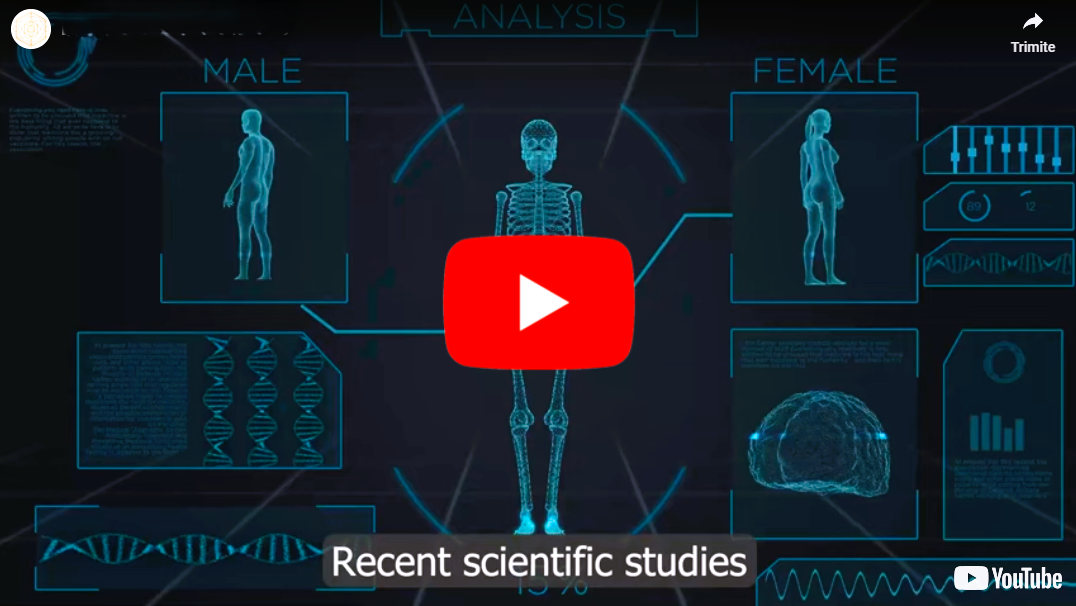BREAKING! WEF Orders Slaughter of Pets Owned by Citizens With Low Social Credit Scores! Watch The People’s Voice Video
Ready to uncover the truth? Sick of the lies? Join our Telegram Channel now. It’s time for the real story! My gratitude to all my readers!
Uncover the shocking truth behind the WEF’s push for governments to euthanize pets of citizens with low social credit scores under the pretext of climate action. This draconian policy threatens personal freedoms and aims to strip society of joy and comfort. Learn why the world is outraged by this ruthless agenda and what’s truly at stake.
In an unprecedented and alarming shift, the World Economic Forum (WEF) has reportedly pushed for global governments to initiate the euthanasia of pets owned by citizens with low social credit scores. This policy, cloaked under the pretense of combating climate change, has sparked worldwide outrage and unveiled deeper, more sinister motivations. The alleged reasoning?
Reducing the “carbon pawprint” as part of a broader plan to implement highly regulated 15-minute living zones where personal freedoms—including the right to own pets—are systematically curtailed. But as we peel back the layers, it becomes clear that this move isn’t just about the environment. It’s an orchestrated step toward stripping people of comfort, joy, and companionship in the name of control.
A New Era of Social Control: The Link Between Social Credit and Pet Ownership
To understand the implications of this mandate, we need to delve into the core concept of social credit systems. Originating in China, social credit scores were designed to evaluate a citizen’s trustworthiness and loyalty to the state. These scores impact everything from the ability to travel to job prospects and, in some cases, access to basic services. Now, the WEF’s proposed policies seek to take this concept a step further—by extending the consequences of a low social credit score to pet ownership.
This isn’t just a move to enforce better behavior; it’s a strategy steeped in psychological warfare. For many, pets are more than animals—they are companions that provide emotional support and alleviate feelings of isolation. By threatening this bond, the WEF sends a chilling message: every aspect of life, including sources of personal happiness, can be controlled and taken away at the state’s discretion. This looming policy doesn’t just signify environmental concern; it’s a bid to remind citizens of their vulnerability under such systems.
The Disturbing “Carbon Pawprint” Argument
At the forefront of this policy is the “carbon pawprint” narrative—a term coined to highlight the environmental impact of pets. While it’s true that pets contribute to carbon emissions, framing them as key contributors to climate change is a gross exaggeration. The average carbon output of household pets pales in comparison to emissions from industrial production, large-scale farming, or aviation. Yet, pets have become the latest scapegoat in the campaign to make individuals accountable for global issues.
The WEF’s push for pet euthanasia in the name of climate action represents a pivot from advocating sustainable practices to imposing draconian measures. While some argue that reducing emissions is vital for the planet’s future, experts have pointed out that targeting pets is akin to ignoring an elephant in the room. How can the authorities justify these policies when corporations and governments, the largest polluters, remain relatively unscathed?
From Peanut and Fred to Your Beloved Pet: The Thin Line Between Policy and Loss
The recent euthanasia of two well-known animals, Peanut the squirrel and Fred the raccoon, was met with an uproar that transcended national boundaries. Social media was flooded with images of mourning citizens, hashtags, and viral petitions demanding accountability. These creatures, once cherished by the public, have now become symbols of a fight for autonomy against an increasingly authoritarian system masked as eco-conscious governance.
These state-sponsored actions signal a precedent that is as frightening as it is strategic. By normalizing the elimination of non-human companions linked to low social credit scores, the policy primes the populace for more sweeping intrusions. Think of the emotional impact: pet owners living with constant anxiety over the possibility of losing their beloved animals. This psychological strain is more than just a side effect; it is a deliberate method of establishing a population on edge—one more easily controlled and less likely to rebel.
A Whistleblower’s Revelation: The Dark Truth Behind the Climate Pretext
While the official narrative highlights environmental sustainability, an anonymous whistleblower from within the WEF has exposed an alternative motive. According to their testimony, the real agenda behind the pet policy is rooted in a far-reaching attempt to strip society of its sources of emotional comfort and joy. The environmental narrative is, in this context, just a cloak—one that hides the iron fist of control beneath a green glove.
THE RED PILL: Discover The Secret Used By A Former CIA Scientist To Open Your ‘3rd EYE’
Why target pets specifically? The answer lies in the intrinsic connection between human well-being and pet companionship. Studies have long shown that pets can reduce stress, combat loneliness, and even improve mental health. For many, they are lifelines that make life bearable. By attacking this connection under the guise of eco-responsibility, the WEF shifts the battleground from tangible environmental policy to the intangible realm of personal autonomy and well-being.
The whistleblower’s testimony, combined with reports of government partnerships to enforce these new regulations, reveals an interconnected web of strategies designed to break the spirit of the population. It’s not just about cutting carbon—it’s about cutting off channels of comfort, making people more pliable to comply with broader, more intrusive social regulations.
15-Minute Living Zones: The Stage for Controlled Existence
Integral to this policy is the push for what the WEF terms “15-minute living zones.” On the surface, these zones promise a utopian future where citizens can access work, education, and shopping within a short walk or bike ride from their homes. The idea seems harmless, even beneficial, fostering community connectivity and reducing traffic congestion. However, the reality is far more complex and restrictive.
In these controlled zones, regulations on pet ownership are just the beginning. The infrastructure for these areas enables constant monitoring and enforcement, ensuring that people adhere to government mandates or face penalties. The restriction of pet ownership is a pilot move that sets the stage for further limitations. If successful, this policy opens the door to more invasive rules, curbing other aspects of personal freedom under the guise of sustainability.
The Psychological Impact of Losing a Pet: More Than Just Grief
To fully grasp the seriousness of this policy, we must acknowledge what pets mean to people on a psychological level. For many, pets are an emotional anchor during life’s most turbulent times. They provide unwavering affection and acceptance in a world where human relationships can be fraught with complexity. Losing a pet can be akin to losing a family member, resulting in grief that impacts mental health, productivity, and overall well-being.
This makes the WEF’s policy not just a matter of environmental concern but a targeted measure to erode the emotional fabric of society. If a pet is a source of comfort, then its sudden, state-sanctioned removal becomes a tool of control. It’s not just the death of an animal; it’s the death of comfort and joy.
Reactions from Around the World: A Groundswell of Resistance
The global response to this policy proposal has been swift and fierce. Protests erupted in cities known for their strong animal welfare movements, with activists and citizens alike demanding that their governments reject the WEF’s recommendations. From online petitions gathering millions of signatures to politicians taking a stand, the message is clear: humanity will not easily surrender the simple pleasure of pet companionship.
Critics argue that if climate change truly is the driving concern, then policies should prioritize impactful, systemic change rather than individual sacrifices that strike at people’s emotional cores. Renewable energy, better waste management, and regulation of high-polluting industries are just a few areas where meaningful environmental change can be made without infringing on personal freedoms.
ALSO: IT’S TIME TO MAKE AMERICA HEALTHY AGAIN: HOME RETREAT | HOW TO RENEW YOUR CELLS IN 7 DAYS!
Conclusion: The True Cost of a Controlled Society
The proposed euthanasia of pets for citizens with low social credit scores exposes a deeper narrative about the future of individual rights and freedoms. While the WEF’s justification hinges on environmental concerns, the broader implications are stark. This policy is not just about climate change; it’s a calculated move to erode what makes life vibrant and fulfilling.
This agenda forces us to confront an unsettling question: What will be the next comfort sacrificed on the altar of control? As more people become aware of these undercurrents, the hope is that public resistance will push back against such intrusive policies. Humanity’s resilience is its greatest strength, and safeguarding the bonds that sustain us—whether through family, friendships, or pets—must become the focal point of this fight.
With the fate of millions of pets and the broader implications on personal freedom hanging in the balance, it’s imperative to stay vigilant. The “carbon pawprint” argument may sound noble, but in practice, it’s a step too far—one that risks turning a fight for the planet into a war against the very essence of human life.






![BREAKING: MARINES STORM LOS ANGELES AFTER NEWSOM CHALLENGES TRUMP — “ARREST ME!” | INSURRECTION ACT ARMED | TOM HOMAN STRIKES BACK [VIDEO]](https://amg-news.com/wp-content/uploads/2025/06/MARINES-STORM-LOS-ANGELES-AFTER-NEWSOM-CHALLENGES-TRUMP-450x268.png)


![BREAKING MILITARY INTEL: U.S. FORCES MOBILIZE IN THE GULF – TRUMP COMMANDS SILENT WITHDRAWALS AS STRIKE OPERATIONS TARGET IRANIAN ARSENALS [VIDEO]](https://amg-news.com/wp-content/uploads/2025/06/U.S.-TROOPS-EVACUATE-FLEETS-MOBILIZE-–-TRUMP-MOVES-FIRST-AS-WAR-BREWS-IN-THE-GULF--450x253.png)

![RED ALERT: WARNING: TULSI GABBARD EXPOSES NUCLEAR HOLOCAUST BLUEPRINT – WE ARE AT DEFCON 1, COMMANDER. GIVE THE NEXT ORDER. [VIDEO]](https://amg-news.com/wp-content/uploads/2025/06/artic-450x270.png)

2 Comments
Klaus Schwab needs to be hunted down and put away in a deep dark hole, never to be seen or heard from again. The little god wannabe bastard is a disease on the earth and his followers need to join him the hell of permanent darkness and suffering. They will never get my pet, he is my child and my little guardian angel!
Consider it has already been done, DD!
God Bless.